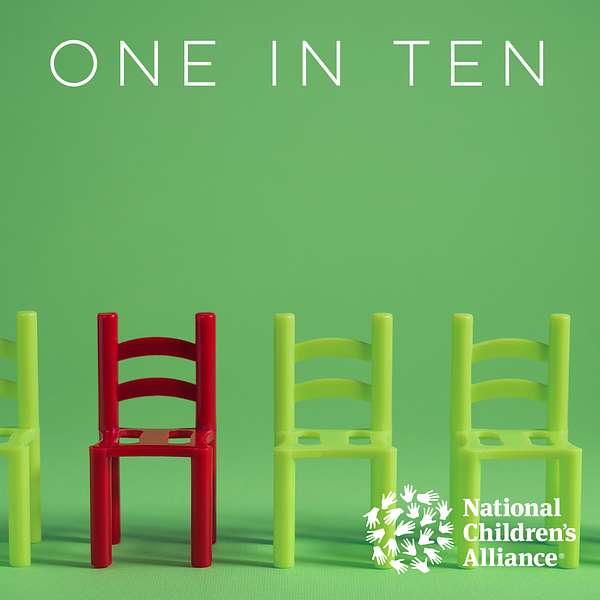
One in Ten
Engaging the brightest minds working to solve one of the world's toughest challenges—child abuse. Join us for conversations with leading experts on science, law, medicine, morality, and messaging. One in Ten is brought to you by National Children's Alliance, the largest network of care centers in the U.S. serving child victims of abuse. Our host is Teresa Huizar, NCA's CEO and a national expert on child abuse intervention and trauma treatment. Visit us online at nationalchildrensalliance.org.
One in Ten
The Hidden Cost of Resilience
Episode 202, “The Hidden Cost of Resilience.” The ability to bounce back from trauma is a good thing. But, increasingly, research is uncovering signs that all may not be well with the kids who look like they’re doing just fine. We spoke to Dr. Ernestine Briggs-King about resilience—and its hidden costs. How can we help kids and families cope with trauma? What factors put children at higher risk? And what does the latest research tell us about the long-term health issues that even the most resilient children may face?
Topics in this episode:
· What is resilience? (1:25)
· Factors that help people be resilient (2:59)
· Abuse disrupts social connections (9:01)
· Racism, homophobia, and other compounding factors (12:25)
· The hidden cost of resilience (17:25)
· Talking to caregivers (25:20)
· Racism’s impacts, and the role of caregivers (28:54)
· Resources (33:13)
· Our next episode (36:58)
Links:
Ernestine Briggs-King, Ph.D., Duke University School of Medicine, and the Center for Child & Family Health
Robert Pynoos, MD, UCLA
Gene Brody, Ph.D. “UGA Research Uncovers Cost of Resiliency in Kids,” by April Reese Sorrow, May 20, 2013, University of Georgia Columns.
“Is Resilience Only Skin Deep? Rural African Americans' Preadolescent Socioeconomic Status-Related Risk and Competence and Age 19 Psychological Adjustment and Allostatic Load,” by Gene H. Brody Tianyi Yu, et al, July 1, 2013, Psychological Science, Vol. 24(7): 1285-1293.
“Family Support Buffers the Physiological Effects of Racial Discrimination,” by Gene Brody, March 1, 2016, Association for Psychological Science Observer.
“The Hidden Cost of Resilience,” by Leonora Desar, June 6, 2013, Psychology Today.
Professor Ann S. Masten, University of Minnesota, author of Ordinary Magic: Resilience in Development
This New Yorker article, “How People Learn to Become Resilient,” talks about the work of Norman Garmezy and Emmy Werner.
National Child Traumatic Stress Network
For more information about National Children’s Alliance and the work of Children’s Advocacy Centers, visit our website at nationalchildrensalliance.org.
Did you like this episode? Please leave us a review on Apple Podcasts.
